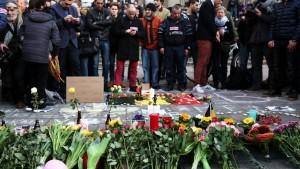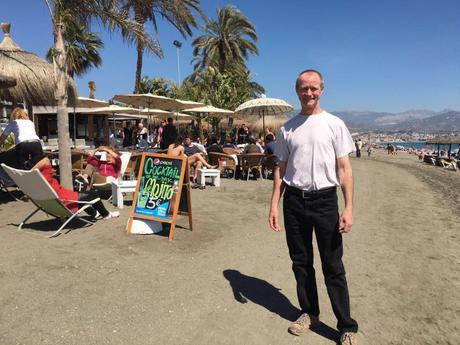 When Kevin Miller planned a trip starting in Barcelona and ending in Istanbul, he and his travel companions knew there was a possibility they could fly into either Madrid or Brussels. The agent ultimately chose Madrid since it would get them closer to Barcelona.
When Kevin Miller planned a trip starting in Barcelona and ending in Istanbul, he and his travel companions knew there was a possibility they could fly into either Madrid or Brussels. The agent ultimately chose Madrid since it would get them closer to Barcelona.
The agent’s decision proved to be one that Miller will likely never forget.
“We landed in Madrid around 7 a.m. Tuesday, March 22,” Miller of Villanova, PA said. It was shortly before 8 a.m. when two suicide bombers attacked the Brussels airport. It wasn’t until Miller got picked up from the Madrid airport by a friend that he heard the news.
“Initially I felt shock and concern for those in Brussels. I didn’t even know that we could have been there until later that night, at which point I felt very lucky,” Miller said.
Following the three attacks in Brussels, the U.S. State Department issued a Europe Travel Alert to make U.S. citizens aware of the potential risks of traveling to and throughout Europe.
According to the alert, terrorist groups continue to plan near-term attacks throughout Europe, targeting sporting events, tourist sites, restaurants and transportation. Because of this, the State Department is advising U.S. citizens traveling abroad to be vigilant in public places and mass transportation as well as being aware of immediate surroundings, avoiding crowded places, and exercising caution during religious holidays and at large festivals or events.
When Miller learned of the alert, he didn’t consider turning around and going home since he was already in Spain.
“[The alert] has, however, made me more conscious of my surroundings,” he said. The alert and terror attacks have made him give more thought about traveling from Barcelona to Turkey.
“I’m think more about whether I should go or not,” he said. “I’m visiting a friend who lives in Istanbul – he has a pretty good barometer on what’s going on there. Even though we hear the worst of what’s happening, from what he can see, he thinks I’ll be ok…if and when I go to Istanbul, I will be even more conscious of my surroundings.”
Although the attacks have ignited fear across Europe and even in the U.S., that’s not the only impact it appears to have had on Europeans as far as Miller can see.
“They seem to take it more in stride; I think it seems to unify them,” he said.

Kevin Miller in Barcelona, Spain
If you’re a U.S. citizen in Europe or about to travel there, the State Department recommends that you:
- Follow local authorities’ instructions, especially in an emergency
- Be prepared for additional security screening and unexpected disruptions
- Monitor the media and local information sources and factor updated information into your travel plans and activities
- Stay in touch with family and ensure they know how to reach you in the event of an emergency
The State Department also recommends that you register in its Smart Traveler Enrollment Program (STEP), a free service that allows U.S. citizens and nationals traveling abroad to enroll their trip with the nearest U.S. Embassy or Consulate. This program gives you access to information from the Embassy about safety conditions in your destination country to help you make informed decisions about your travel plans. It also helps the U.S. Embassy contact you in an emergency, whether that’s a natural disaster, family emergency or civil unrest. Additionally, the STEP program helps your family and friends get in touch with you in an emergency.
Photo from Independent.ie


